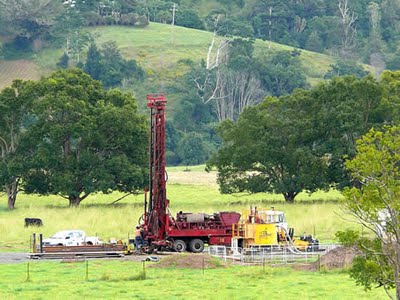Fifty per cent of Australians would like to see greater regulation of the coal seam gas (CSG) industry, while 71 per cent think it should be under the control of the federal government, rather than individual states, according to new research by The Australia Institute.
The report – Fracking the future: Busting industry myths about coal seam gas – shows that uncertainty remains a key issue as Australia seeks to tap its considerable unconventional gas resource.
“Respondents to our survey raised concerns about damage to the local environment, negative impacts on farming land, health impacts and water contamination,” report author and senior economist Matt Grudnoff said.
Grudnoff said the report showed the federal government was out of step with the public on CSG, which clearly wants better regulation of the industry’s ambitious expansion plans.
For some time now, concern has been growing, globally, over the potential health impacts of fracking in shale gas mining, as well as the fugitive emissions from CSG mining and the potential impact on climate and the environment.
In Australia, this concern has been fuelled by governments’ seemingly lax approach to the CSG mine approvals process.
In April 2013, then independent MP Tony Windsor – who helped launch the TAI report today – called for increased industry scrutiny on the industry after a report on the ABC’s Four Corners alleged that certain Queensland coal seam gas projects were rushed through without proper governmental oversight.
TAI’s latest research, released on Tuesday, shows overwhelming public support – 86 per cent – for more information to be provided about the possible health and environmental impacts of coal seam gas projects when they are proposed in local areas.
The report also examines any alleged potential benefits of CSG mining – such as lowering the price of gas, increasing energy security and creating jobs – as nominated by the survey’s respondents, and has found that the economic claims, in particular, do not stand up to scrutiny.
“Once Australia’s eastern gas market is linked to the world market, the prices we pay will jump to match the world price,” Grudnoff said.
“Our paper also discredits the claim that the industry creates a lot of jobs, showing the entire oil and gas industry employs 23,200 people, or just 0.2 per cent of the Australian workforce. To put this in context, the hardware retail company Bunnings employs 33,000 people.”
But the concern over CSG mining extends beyond environmentally minded citizens and disgruntled farmers and land owners.
In a 2013 survey of superannuation fund members commissioned by Market Forces, TAI found a quarter of respondents were prepared to switch super funds if they found their current one was invested in coal seam gas, based on concerns about environmental impact. In their paper documenting this result, TAI estimated this proportion to represent a pool of funds of around $247 billion.
In November 2013, The Australia Institute co-published a paper with The Social Justice Initiative investigating the existing research of unconventional gas impacts – CSG, shale gas and tight gas – on health and the climate. The paper concluded that mining for unconventional gas might not be worth the risk.










